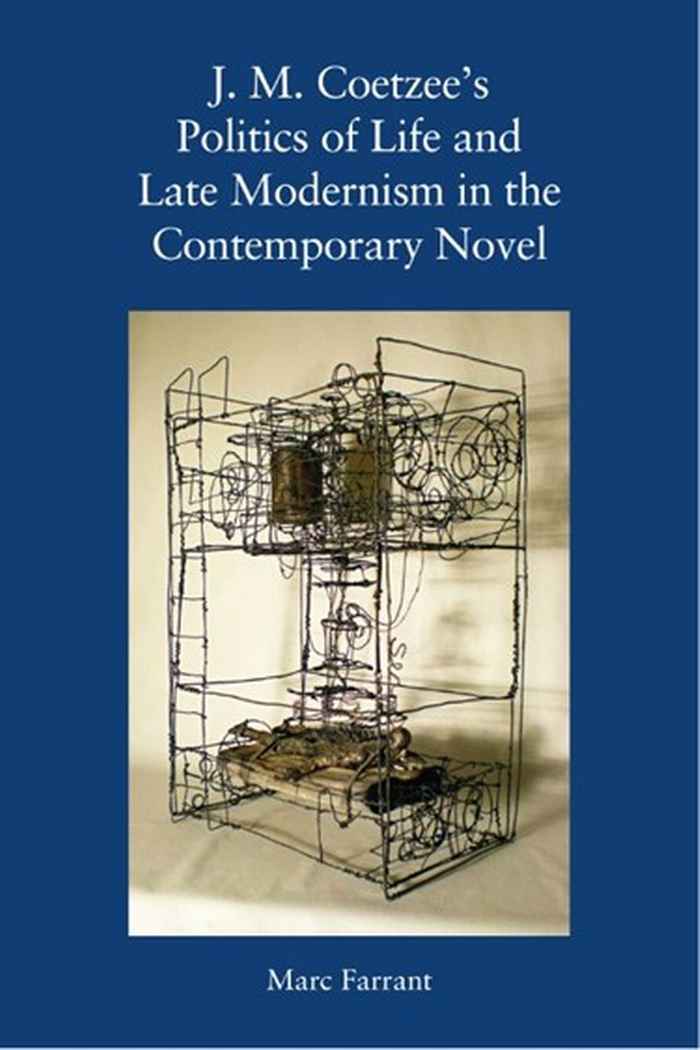New Book by Marc Farrant
J. M. Coetzee's Politics of Life and Late Modernism in the Contemporary Novel
18 March 2024
Surveying the full breadth of J. M. Coetzee’s career as both academic and novelist, this book argues for the necessity of rethinking his profound indebtedness to literary modernism in terms of a politics of life. Isolating a particular strain of late modernism, epitomised by Kafka and Beckett, Farrant claims that Coetzee’s writings consistently demonstrate an agonistic engagement with the concept of life that involves an entanglement of politics and ethics, which supersedes the singular theoretical frameworks often applied to Coetzee, such as postcolonialism, posthumanism and animal studies. Running throughout his engagement with questions of modernity and colonialism, storytelling and life writing, human and non-human life, religion and post-Enlightenment subjectivity, Coetzee’s politics of life yield a new literary cosmopolitanism for the twenty-first century; a powerful commentary on our interrelatedness that emphasises finitude and contingency as fundamental to the way we live together.
This book explores Coetzee’s relation to late modernism and broader intellectual development using original archival material. It covers a broad focus, including most recently published works (that are excluded from earlier studies), and non-fiction writings. Further, it sheds new light on the legacies of modernist writing in contemporary literature, and the intersection of literary form and ethico-political debates.
